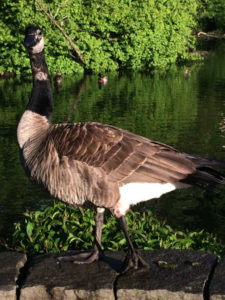
He sits close to her, slowly caressing her back. In my mind, as she turns to look at him, I hear the quintessential wedding song, Eta James’ “Can’t Help Falling in Love.” Their eyes lock, a momentary glance, full of knowing. Giggles. A hearty laugh. They break their gaze and turn to me. ‘Of course it would. We’ll figure it out.’ The question they are answering? “Imagine one of you becomes ill, not with a cold, but with something very serious. Do you think your relationship could withstand that type of stress?”
I work with couples across the lifespan of a relationship – divorce, considering divorce, general couples counseling and with are those who are about to get married. Not all couples choose to do this these days, in many ways it has fallen out of vogue, but there are still a large number who cannot wait for the big day, the ‘do’ where they will say their ‘I dos’. While it might seem a little old fashioned, I consider premarital counseling to be one of the most important details of planning your big day. It used to be that this mainly happened in a religious place of worship and couples would sit awkwardly with their priest or rabbi discussing a variety of rather tame subjects. Today, premarital counseling is more often done in an office like mine, with a therapist guiding you through some of the possible life scenarios that over time, might trip your relationship up.
How often will you have sex? If one of you loses interest, is a sexless marriage a deal breaker? Who will pay the bills? Who will get up with the babies that are currently just figments of your imagination but you hope will soon be a reality? What happens if one of those said babies is born unhealthy? Who will take out the trash? Do you go to your parent’s house for the holidays or your spouse’s? Will you rent or buy your home? How much money will you put aside for retirement? When does a white lie become an actual lie or, is a white lie unacceptable no matter what? Most of the couples I work with are still looking through rose colored glasses. I certainly do not want to pop their bubble, but it is worth considering that over time small things can chip away at the shiny veneer of a relationship. Learning how to discuss life’s big and small issues contributes to a solid foundation for your relationship: It lends itself to couples holding each other up and standing by each other’s sides, even when things become difficult.
Today I am going to throw caution to the window and profess my true love for birds. Bear with me, I know it probably seems like I just threw you a curve ball, but in the end, it will make sense. At least that is the plan. I am a bird nerd. Maybe not as much as the lady I saw at the Iris Gardens who was carrying her parrot around in a bird cage backpack, explaining the subtle nuances of scent to him, but I do find great enjoyment in watching them take flight and care for their young. I marvel in the extreme differences in colors and shapes within the species, the vibrancy of some, the muted colors in others, the awkwardness of the long legs of the heron as it walks along a lake’s edge and the gracefulness of an eagle soaring above. While it might seem mundane, my absolute favorites are Canadian Geese. They are definitely not the flashiest of the bunch, but I feel fully alive when I see them flying above in their telltale V and hear their haunting honks. If you spend enough time around them they begin to recognize you and if you really observe them you can see how they communicate through head tosses that would leave most humans needing a chiropractor. The best part of Canadian Geese, however, is that they are truly committed to one another.
Canadian Geese couples almost always remain together “Til Death Do Us Part”: They are loyal parents and partners. They are extremely devoted to one another and work in tandem to raise their young. Researchers have reported that if one half of the couple is shot by hunters that the other half of the couple will come back to find it. These pairs have such strong bonds that the healthy goose will remain with its struck partner, until the other one’s death, even if it requires sitting in harm’s way. Geese mourn their partner’s passing and during this period are more likely to hurt themselves when flying because they are distracted.
I often visit a local park where a flock of geese have taken up permanent residence. For the last three years I have been visiting a female goose and her partner whom I have dubbed “Daddy.” Daddy looks like he has been through the ringer. He was obviously injured, most likely as an adult. What preceded what, I do not know, but the left side of his head and neck are riddled with scars and missing chunks of feathers. His left leg is lame and he spends the majority of his time calmly standing on the right one which has developed into a thick stump of strength. A leg that never falters, never gives out on him. His left foot turns inward and when he does try to walk on it he cannot bend it, causing him to have a very slow, awkward gait. Despite, what most would consider handicaps, he is a stalwart partner. For 30 days every spring, he stands watch over his gal as she sits on their eggs. Whether it is raining or sleeting or hailing, he stands there on one leg, just far enough away as to not draw attention to her but close enough that if any animal were to threaten her safety, he could be by her side. As Daddy walks around the shore of the lake, I can see how vulnerable he is, leg dragging, neck somewhat weakened. Regardless of his physical condition, he carries himself with an attitude that says “I dare you to mess with me or my girl.” When he is on the water, he glides with a bit of a hitch in his giddy up. It is barely perceptible, but there all the same. A slight gap in grace as his left foot catches on the water, just below the surface, and then his right foot steadying his movement, allows him to glide forward.

During breeding season, Daddy’s partner always seems peaceful. She appears to understand that she is being carefully watched. In the off breeding season she often swims or walks slightly ahead of him, turning every so often to see if he is close by. When she sees that Daddy has fallen behind she turns around and checks back in with him. At times, his gal will be sitting on a rock by herself, near the geyser like fountain that helps keep the water in the lake moving and clear. Daddy will be a little bit farther down the lake, voraciously eating the bits of corn that children excitedly scatter as they walk through the grounds with their parents. Why she decides that it is time to call him back, I do not know, but when she honks, Daddy’s head pops up, his bum leg hovering slightly above the ground, his good one propelling him forward, he awkwardly jumps into the water and immediately swims to her side.
I spend my days meeting with couples who are often contemplating if they want to continue their relationships. Do they want to be Daddy and his partner? Steadfast and stalwart partners? Over the years the initial excitement about each other has waned. More often than not these couples have not attended premarital counseling. This means they do not know why, but they have stopped feeling appreciated and have in return stopped showing their appreciation. They spend their time having the same arguments and dizzily stand there trying to figure out how to jump off the merry-go-round of irritation and contempt that has become their life. Many have been emotionally wounded and are metaphorically limping and struggling to hold up their scarred necks and heads. These couples no longer feel that their own partner will loyally stand by them if a hunter has shot them down. They come to counseling because they are questioning if they can overcome their miscommunication and the distance that has built over time. Unlike the geese, they are wavering over whether or not they want to steadily sit by each other’s side. Are they still sure that they want to hang in there “Til Death Do Us Part?” While I cannot confirm that there is an actual Canadian Geese endorsed program, my hunch, just from hours of bird nerd observation, is they have all participated in at least 8 -10 sessions of premarital counseling.




